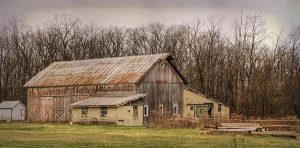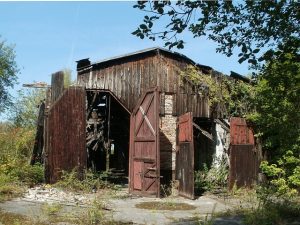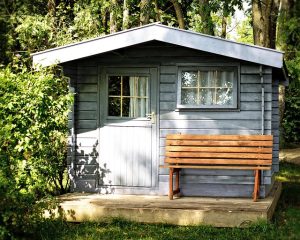Resilient Farm Shed Designs for Albury’s Climate: Materials and Custom Features
Farm shed construction in Albury, a region with extreme and varied weather conditions, has evolved to meet the specific needs of local farmers. These advanced farm sheds are designed with resilient materials like heavy-duty galvanized steel fra…….
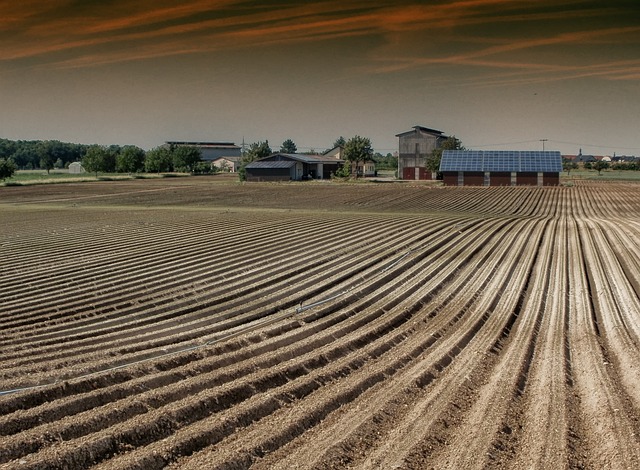
Farm shed construction in Albury, a region with extreme and varied weather conditions, has evolved to meet the specific needs of local farmers. These advanced farm sheds are designed with resilient materials like heavy-duty galvanized steel frames and durable cladding such as Colorbond or Zincalume to combat corrosion. The roofs are engineered for optimal water runoff, a necessity given Albury's intense rainfall. Strategic placement of sheds maximizes natural light and heat in winter while providing cool interiors in summer, embodying passive solar design principles that enhance comfort and energy efficiency. Integrated ventilation systems, including ridge vents and eave overhangs, ensure effective temperature regulation. The choice of materials like Colorbond steel, which resists fading and corrosion, is crucial for longevity and cost-effectiveness, with careful consideration given to the lifecycle costs and aesthetic appeal. In Albury, where weather conditions are unpredictable, these farm sheds offer versatility, with customizable features like insulation, lighting, ventilation systems, and internal fittings to accommodate various farming needs. The inclusion of large doors allows for easy access by heavy farm machinery. Farm shed development in Albury represents a fusion of practicality, resilience, and scalability, aligning with the evolving demands of the local agricultural sector and contributing to sustainable farming operations.
Exploring the resilient architecture of farm sheds tailored for Albury’s diverse weather patterns, this article delves into the design principles and material choices that ensure durability and cost-effectiveness. From the wind-swept plains to the irregular rainfall, understanding the local climatic conditions is paramount in crafting sheds that meet Albury’s agricultural demands. We will examine innovative features and customization options available for farm shed construction, ensuring they stand strong against Albury’s elements.
- Designing Robust Farm Sheds to Withstand Albury's Climatic Conditions
- Material Considerations for Durability and Cost-Effectiveness in Albury Farm Sheds
- Innovative Features and Customization Options for Albury's Agricultural Needs
Designing Robust Farm Sheds to Withstand Albury's Climatic Conditions
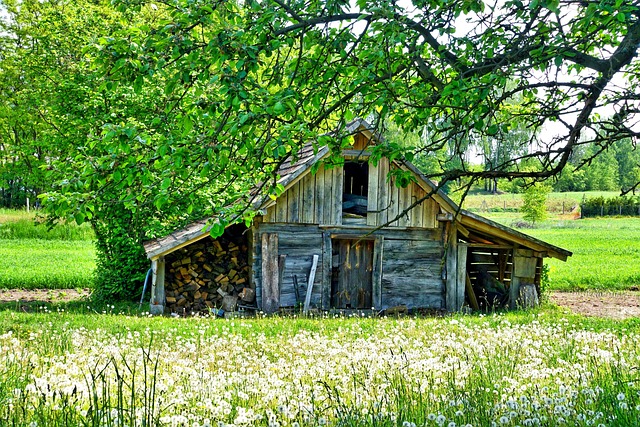
In Albury, a region characterized by its diverse and often extreme weather patterns, designing robust farm sheds requires a deep understanding of local climatic conditions. Farmers in this area must ensure their sheds can withstand both the intense heat of summer and the cold, wet winters. Consequently, the design of farm sheds in Albury prioritizes durable materials that provide adequate insulation and shelter. These structures are typically constructed with heavy-duty galvanized steel frames, complemented by Colorbond or Zincalume cladding to shield against corrosion from the humid air. The roofing profile is carefully chosen to optimize runoff and minimize water collection, a feature crucial for preventing leaks and water damage during the frequent rainfall. Additionally, strategic placement of sheds within farms can create natural windbreaks, reducing the impact of strong winds and protecting both the shed’s integrity and the contents within.
The orientation of farm sheds in Albury is another critical factor in their design. By positioning sheds to take advantage of the sun’s path, farmers can maximize natural light and heat during colder months while ensuring that the interiors remain cool in summer. This passive solar design approach not only enhances comfort but also energy efficiency, reducing reliance on artificial lighting and heating. Furthermore, incorporating ventilation systems, such as ridge vents or eave overhangs, allows for natural airflow, which is essential for mitigating the effects of high temperatures. These design elements are key to creating farm sheds that can endure Albury’s challenging weather conditions, ensuring longevity and protection for agricultural equipment and produce year-round.
Material Considerations for Durability and Cost-Effectiveness in Albury Farm Sheds
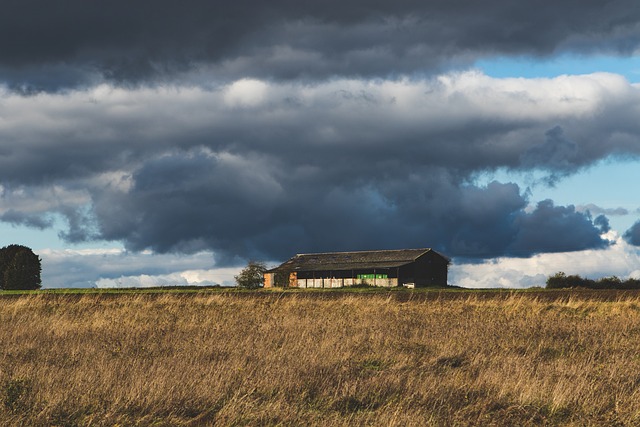
In the temperate climate of Albury, durability and cost-effectiveness are paramount considerations for farm shed construction. Selecting appropriate materials is crucial for withstanding the region’s variable weather conditions, which include both harsh summers and cold winters. For optimal longevity, materials such as Colorbond steel have proven to be a favored choice among Albury farmers due to their resilience against corrosion and fading, ensuring a long-lasting structure that can endure the elements without frequent maintenance or replacement. Additionally, the use of this steel, which is available in a variety of designs and colors, allows for both functional and aesthetically pleasing farm sheds that complement the rural landscape. The cost of materials should also be weighed against their lifespan; investing in higher quality, more durable materials can often result in long-term savings. For instance, while timber might seem like a cost-effective option initially, its maintenance and susceptibility to pests can lead to higher costs over time. By considering the balance between upfront investment and long-term durability, Albury farm shed owners can make informed decisions that align with their specific needs and budget constraints. The choice of materials not only impacts the longevity and maintenance requirements of the shed but also influences its thermal efficiency and energy costs, making it a critical aspect of sustainable farming practices in the region.
Innovative Features and Customization Options for Albury's Agricultural Needs
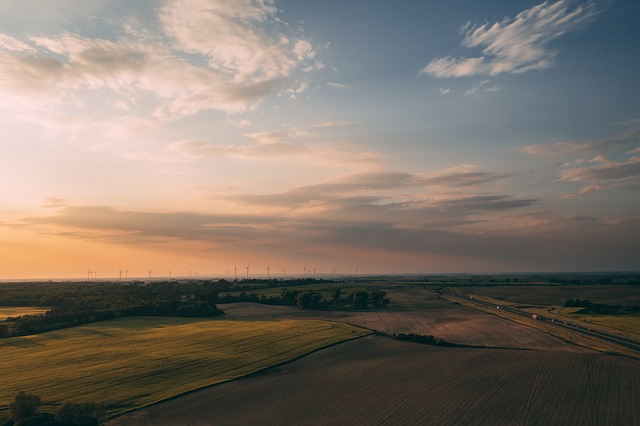
In Albury, where the weather can be both unpredictable and harsh, the demand for durable and versatile farm sheds has led to a surge in innovative design and customization options. These agricultural structures are not just repositories for machinery or storage spaces; they are multi-functional assets tailored to meet the specific needs of the region’s farmers. Advanced farm shed designs incorporate features such as high-grade steel frames that withstand strong winds, a common occurrence in the area. Additionally, these sheds come equipped with insulated panels to protect against extreme temperatures, ensuring year-round protection for sensitive equipment or livestock. Customization options abound, allowing farmers to select from a range of sizes, wall and roof cladding materials, lighting, and ventilation systems to suit their particular agricultural activities. For instance, sheds can be fitted with specialized shelving or workbenches for easier organization of farming supplies or tools. Furthermore, options like roller doors or large double doors facilitate easy access for heavy farm machinery. These customizations not only enhance the functionality of the shed but also contribute to its longevity and adaptability to future needs. As a result, these farm sheds are an indispensable part of modern Albury agriculture, offering a blend of practicality, resilience, and scalability that meets the diverse requirements of the region’s agricultural sector.
In conclusion, the design of farm sheds in Albury must be tailored to meet the unique demands of its local climate and agricultural needs. By incorporating robust construction methods and selecting durable, cost-effective materials, these structures can provide optimal protection for crops and equipment. The innovative features and customization options available today ensure that each farm shed is a precise fit for the specific requirements of Albury’s diverse farming sector. Investing in quality farm sheds not only safeguards against harsh weather conditions but also enhances productivity, making them an indispensable asset for local farmers. With careful planning and attention to detail, these structures stand as a testament to the resilience and adaptability of Albury’s farming community.
